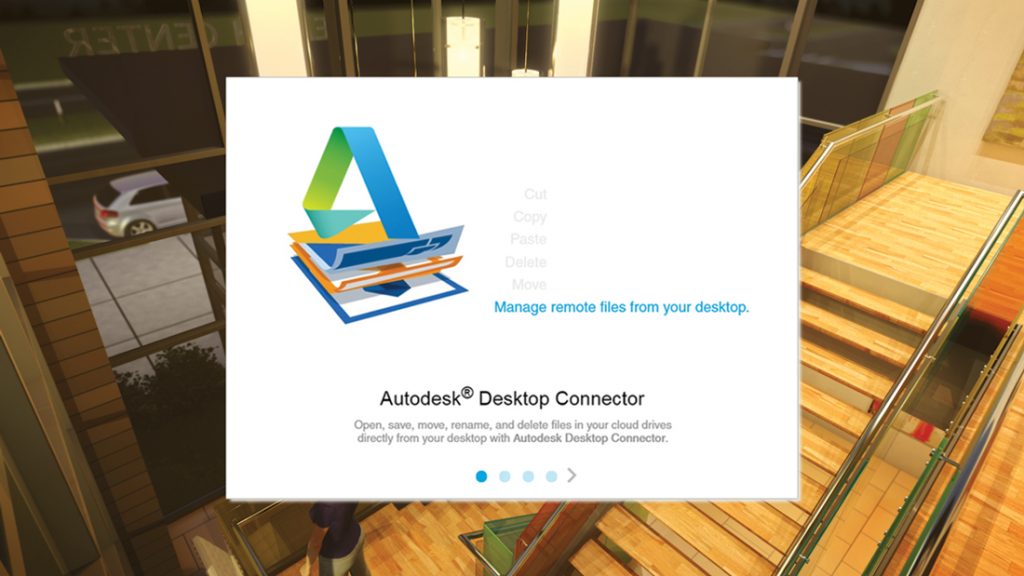If you haven’t seen it yet, it’s time to download the new Autodesk Desktop Connector to manage linking in Collaboration for Revit with other files hosted in the BIM 360 Team project space. The connector is a desktop service that integrates data sources with your desktop folder and file structure for easy file management. Previously you had to post files through a web browser, taking time to download and upload before posting. Now the Desktop Connector lets you work much more efficiently with BIM 360 Team. The files in the data source are replicated in a connected drive. You can manage files in the data source through the connected drive, just as you would any other folder on your machine, dragging and dropping, renaming, and copying files. Changes made in the connected drive are automatically uploaded to the data source. If you are part of more than one hub in BIM 360 Team, each of them will appear on your desktop with the standard disk and file tree structure of Windows® Explorer or macOS® Finder. You can access hubs in Explorer or Finder just like any other folder on your machine. The Desktop Connector replaces the discontinued A360 Drive Desktop App.
Using Revit 2018, with the Desktop Connector, you can manage linking in Collaboration for Revit from your desktop:
- Link cloud workshared Revit Models to DWG files in the same BIM 360 Team project. This means that anyone who accesses a Revit model in Collaboration for Revit will see the links. Note that file linking with Collaboration for Revit using Desktop Connector works only with Revit 2018.2 (and following releases).
- Link cloud workshared Revit Models to other common data files like keynotes, shared parameters, or Uniformat files.
- Link to non-cloud workshared Revit models in the same project. Previously you would not have been able to reference a model that was not in Collaboration for Revit unless you downloaded it and opened it and initiated it to Collaboration for Revit. Now you can regularly update these by simply uploading a new version to BIM 360 Team.

For further information and videos, visit this post on the Convergence Blog
Revit 2018 Help content on using the BIM 360 Team connected drive
Download the Desktop Connector
Try Collaboration for Revit and BIM 360 Team free for 60 days